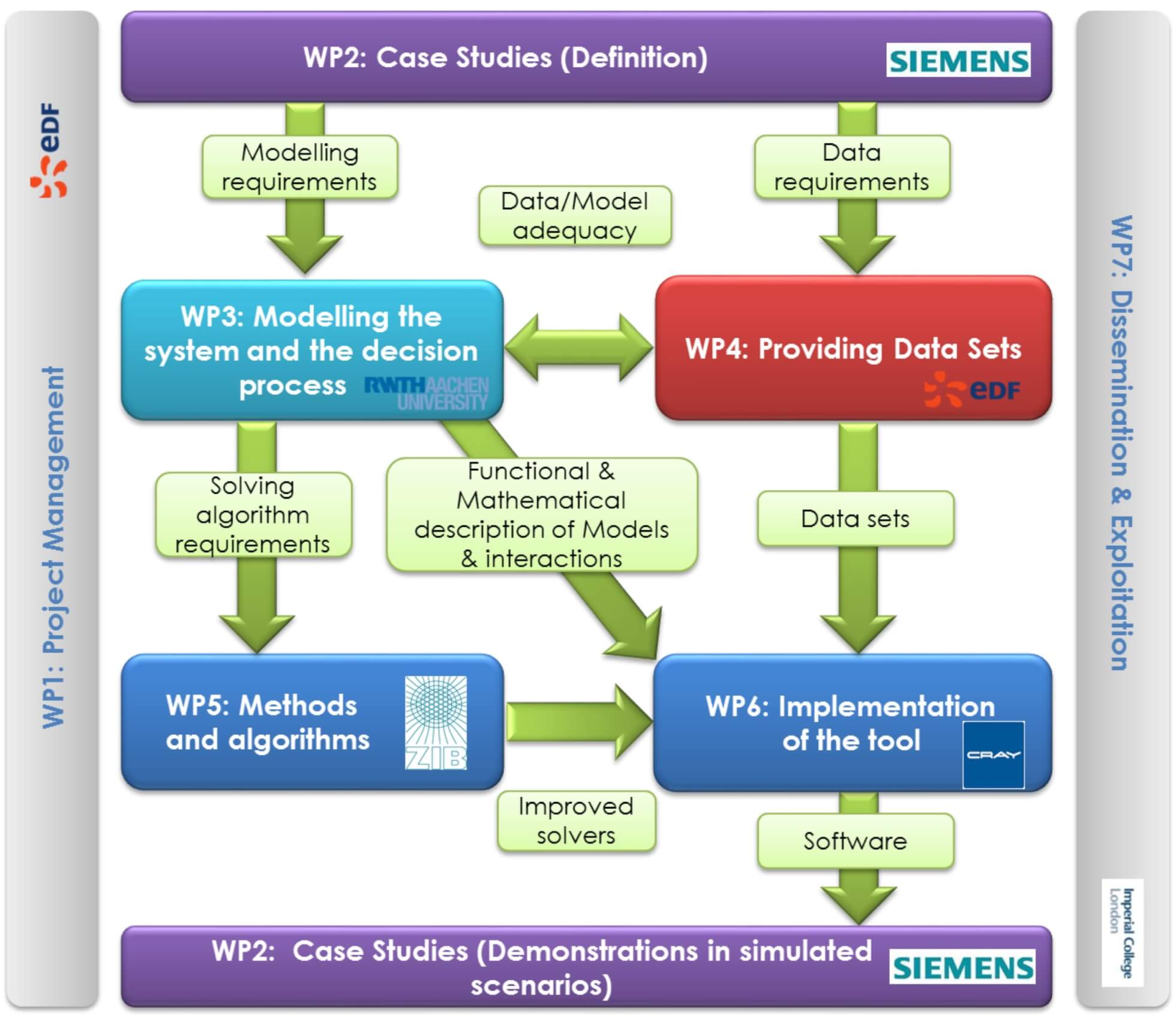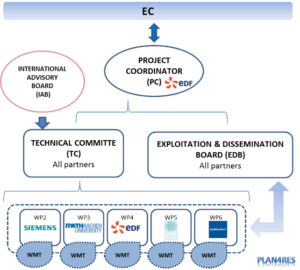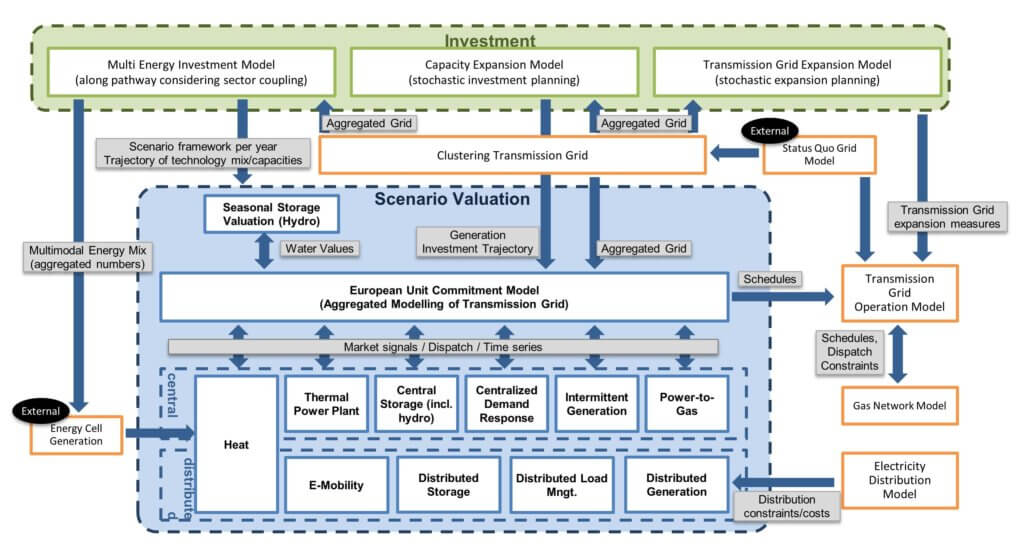The project is organised in 7 Work Packages (WP), as shown below :

WP1 will assure proper execution of the administrative and financial tasks.
Within WP2, three case studies with European scope will be performed to show the adequacy and relevance of the tool through later demonstration of these case studies in simulated scenarios supported by WP6 tools ; WP2 will define the requirement of models developed in WP3 and the data needed in WP4.
Case studies :
1-Multi-modal European energy concept for achieving COP 21 goal with perfect foresight, considering sector coupling of electricity, gas, heat and transport demand (lead : SIEMENS)
2-Strategic development of pan-European network w/o perfect foresight and considering long-term uncertainties (lead : IMPERIAL)
3-Cost of RES integration and impact of climate change for the European Electricity System in a future world with high shares of renewable energy sources” (lead : EDF)
The detailed description of the 3 case studies is available in the public delivrable D2.1 (complete document available upon request at contact@plan4res.eu)
WP3 (closed) provides a description of the electricity system, its interaction with other energy systems and detailed mathematical description of models (some based on evolutions of existing models, others developed by the project). It also provides functional and mathematical description as well as model interactions as inputs for WP5 and WP6 implementation.
Deliverable D3.1 (full deliverable available upon request at contact@plan4res.eu) provides a description of the interactions between all models
WP4 is in charge of data collection, generation, transformation and storage. In this WP :
- We designed a data structure –including input/output data formats – for the tools implemented within the project,
- We implemented a data platform which serves as a repository for all data,
- We are implementing data transformation functions,
- We will compute the specific data sets for case studies.
WP5 provides common algorithms and mathematical methods needed for solving the considered problems (mainly decomposition algorithms and solvers as well as MILP algorithms and solvers). Specific adaptations to fine tune those algorithms for the specific purpose of the tool are being performed. The selected solving methods will be directly linked to WP6 implementation.
More specifically :
- The latest SCIP release by ZIB will help to solve large-scale MIP problems within plan4res
- StOpt, an open-source stochastic optimization library by EDF will be used for solving large seasonal storage problems
- NDOSolver/FiOracle by University of Pisa, will be used for solving problems induced by decomposition algorithms
WP5 issued the following public deliverables :
- D5.1 New version of the SCIP solver adapted and integrated in Plan4Res Platform
- D5.2 New version of the StOpt library adapted and integrated in Plan4Res Platform
- D5.3 New version of the NDOSolver/FiOracle software (with advanced features needed for Plan4Res and integrated in Plan4Res Platform)
The full versions of all 3 public deliverables are available upon request at contact@plan4res.eu
WP6 will implement the models described inWP3, solved by the methods from WP5. WP6 comprises tasks to provide the tools to enable seamless integration of self-contained/opaque models, to define standardized interface architecture for models developed in the project, and to provide a workflow coordination infrastructure to orchestrate the efficient execution of the problem-specific coupling of models at all levels. Prototypes for case-studies will also be developed.
WP7 will be dedicated to the planning and execution of the project dissemination and implementation.
The Project will be managed through the following bodies:

- The Project Coordinator (EDF) will be in charge of coordinating project management and reporting activities.
- The Technical Committee (TC) will act as the supervisory body for the project execution.
- The Work Package Management Team (WPMT) will be in charge of managing all day-to-day activities, including technical work and reporting to the TC.
- The International Advisory Board (IAB) will provide the PC with consultancy on technical activities for further empowering the efficiency of the project coordination and management.
- The Exploitation & Dissemination Board (EDB) will approve the exploitation plan and all dissemination actions.







